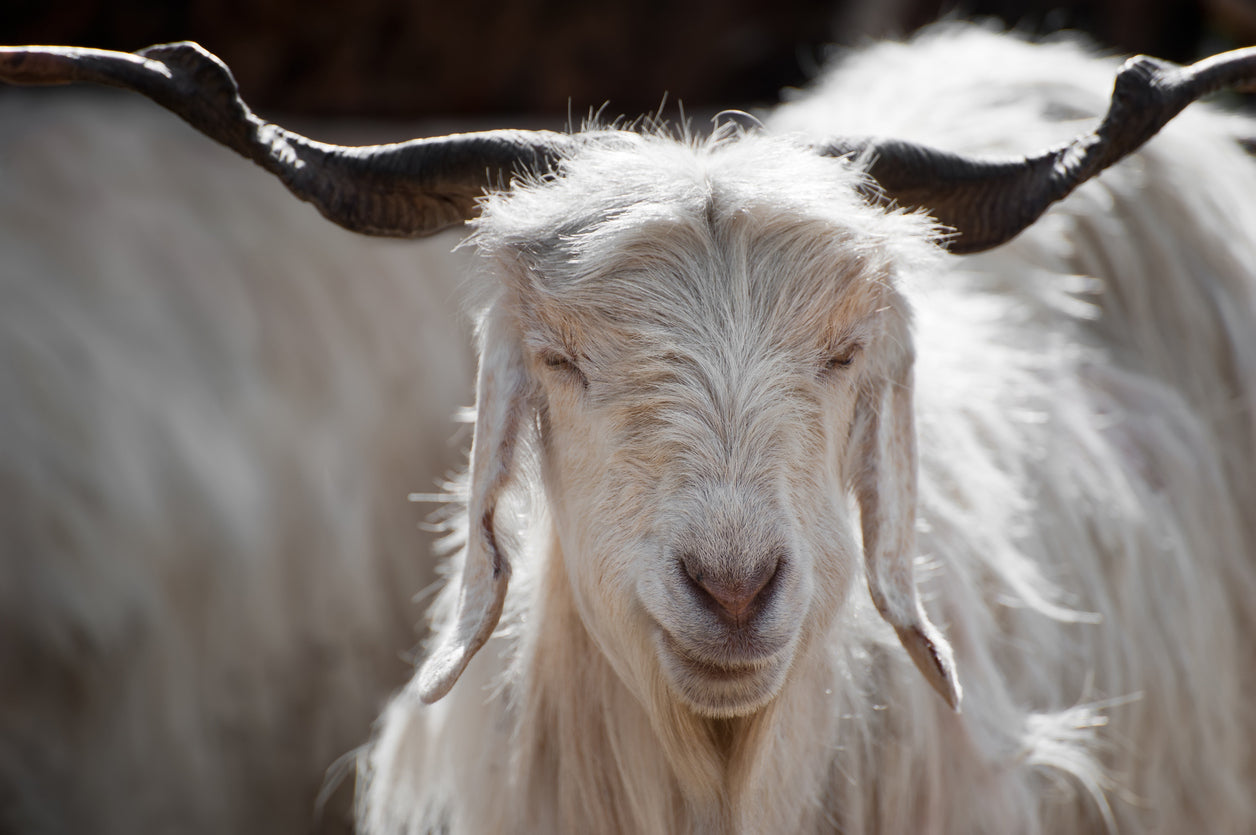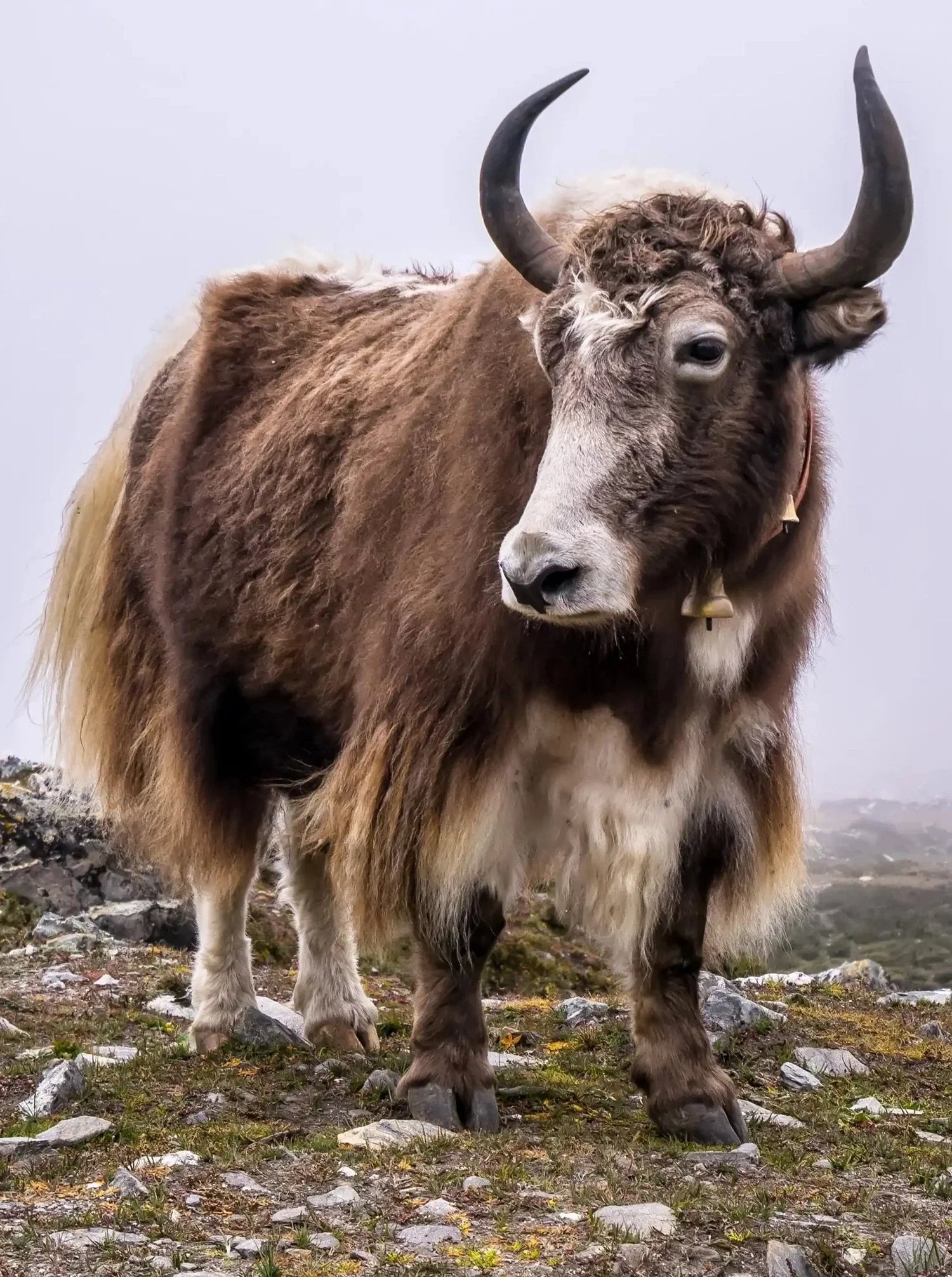Sustainability
OUR COMMITMENT TO THE ENVIRONMENT
Misty Cashmere in based in a village near Lewes in the heart of the Sussex Downs. We create ethical garments made from natural fibres which are easy to wear in modern timeless styles. We examine all fabrics and yarns as well as trimmings for their ecological impact; we also scrutinise all aspects of our supply chain.
PLATEAU, PLAINS, MOUNTAINS AND ROLLING HILLS
Our knitwear is spun in cashmere, cashmere and merino, yak yarn and wool - each being socially and responsibly produced. The cashmere used in our garments is from the Erdos Plateau, Inner Mongolia and the yak yarn comes from Tibet — both are spun in Inner Mongolia. The merino wool in most of our knitwear comes from Australia whilst our socks are made in Bradford, UK.
The hemp for our shirts comes from rural villages in Uttarakhand, India on the Nepalese, Tibetan boarder. The shirts are made in association with the Hemp Foundation.
Our socks are made in a traditional mill in Bradford where the yarn used has been tried and tested for durability and warmth. The yarn is a blend of various wools from Australia, South Africa, and South America. This unique combination of wools gives a yarn that is soft to the touch, but still strong enough to be used everyday in socks. Sock yarns have to be strong enough for constant rubbing, yet have fibres that don't make your feet itch; this is unlike fibres found in most breeds of sheep from the Northern Hemisphere which more suited for making carpets and durable wool coats or other items that aren't constantly in contact with the skin.

Organic Cashmere
Our supplier farms cashmere goats that are raised on open grasslands. Temperatures often get to -46° C on the Mongolian Steppe which is exposed to the cold Siberian winds from the north. To brace themselves against the harsh winters the goats produce a downy layer known as cashmere which is believed to be the finest, longest and softest yarn in the world; it is finer, stronger, lighter and approximately three times more insulating than sheep wool. Once the raw fibre has been collected from the goats it is washed and cleaned before 'carding' or dehairing and then dying and spinning into yarn. It is then spun and sewn together by 'linking'. The finished garments are washed and dried before a final inspection. The yarn we use is mid weight 70% wool/30% cashmere and complies with the following standards:
The Good Cashmere Standard
Traceable Cashmere - Organic Cashmere
International Cooperation Committee on Animal Welfare (ICCAW) and Sustainable Fibre Alliance (SFA)
OEXO-TEX Standard 100
Our supplier, Mr Murun, is a traditional Mongolian whose family lives in Ordos, Inner Mongolia. Every spring he goes back home for the cashmere harvest. Mr Murun has made a short film which follows his return home for the cashmere harvest and gives an insight into the lives of Mongolians today who lead a traditional life in this vast landscape.
Mongolian Life in the Gobi Desert and Cashmere Fibre Harvesting

Sustainable Yak
Like the cashmere goats, yaks form a dense woolly undercoat over the chest, flanks, and thighs to insulate them from the extreme winter cold. The yak is the main bovine in the Tibetan Plateau and is a heavily built animal with a bulky frame, sturdy legs and rounded cloven hooves, not to mention extremely dense, long fur that hangs down. Wild yaks are generally dark, blackish to brown in colour, while domestic yaks can be quite variable, being brown, grey, white or even piebald. Because the yak hair is such a beautiful natural colour we leave it undyed for our knitwear.
Yaks are free ranging; the herders follow them in a nomadic pattern between spring, summer, autumn and winter pastures. They help maintain the delicate ecosystem of the area as they graze on a variety of flora, fertilize the land with their manure and spread the seeds with their broad hooves. The yaks are not clipped but instead the hair is gathered naturally when they moult in the summer and retains its insulating properties when knitted into garments.
Environmental Hemp/Lyocell
Our shirts are made in a sustainable 40% hemp/ 60% Lyocell mix.
We have chosen to use hemp fabric because it is four times as strong as cotton, it is UV resistant, breathable and resists bacterial growth. The crop uses a fraction of the amount of water used for equal quantities of cotton production, it does not require insecticides or pesticides, it has a short growing cycle relative to cotton and helps enrich the soil on which it is grown.
Lyocell is a silky smooth modern luxury fabric which drapes well and is soft, lightweight and comfortable against the skin. It works very well with hemp and is has moisture wicking properties which help to keep you fresh and dry.The Hemp Foundation gives educational support to farmers to help understand the viability of industrial hemp. The Hemp Foundation (Ukhi India Pvt. India) is heavily invested in being an educator for local communities and setting up local self-help groups. They empower these groups to become self-sufficient by facilitating cutting edge knowledge, economic support and administrative aid. The foundation is also trying to bring change to the lives of women in the area; they conduct training programmes and workshops for women so that they can become more economically independent. The work of the Hemp Foundation can be see here: The Hemp Foundation.
